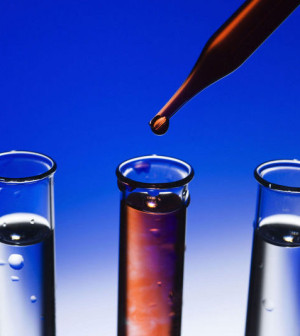- Could Your Grocery Store Meat Be Causing Recurring UTIs?
- Are You Making This Expensive Thermostat Error This Winter?
- Recognizing the Signs of Hypothyroidism
- 10 Strategies to Overcome Insomnia
- Could Artificial Sweeteners Be Aging the Brain Faster?
- Techniques for Soothing Your Nervous System
- Does the Water in Your House Smell Funny? Here’s Why
- Can a Daily Dose of Apple Cider Vinegar Actually Aid Weight Loss?
- 6 Health Beverages That Can Actually Spike Your Blood Sugar
- Treatment Options for Social Anxiety Disorder
Scientists Say They’ve Created New Type of Stem Cells

Scientists say they have created embryonic stem cells with just one copy of human DNA instead of the normal two, and they believe their achievement might help further genetic and medical research.
These stem cells are the first human cells capable of dividing and replicating with just one copy of DNA, according to the paper published March 16 in the journal Nature.
“This study has given us a new type of human stem cell that will have an important impact on human genetic and medical research,” said study principal co-author Dr. Nissim Benvenisty, director of the Azrieli Center for Stem Cells and Genetic Research at Hebrew University of Jerusalem, in Israel.
“These cells will provide researchers with a novel tool for improving our understanding of human development, and the reasons why we reproduce sexually, instead of from a single parent,” Benvenisty said in a university news release.
Human cells typically inherit two sets of chromosomes, 23 from the mother and 23 from the father, the researchers explained.
Only egg and sperm cells contain a single set of 23 chromosomes, and they cannot divide to make more eggs and sperm, the scientists added.
Other efforts to generate embryonic stem cells using just human egg cells did not work, the researchers noted. But in their latest study, they triggered unfertilized human egg cells to divide. They then highlighted the DNA with a fluorescent dye, and isolated the stem cells that had only 23 chromosomes.
The researchers showed that these stem cells could differentiate into many other cell types, including nerve, heart and pancreatic cells.
Because these stem cells have just one copy of DNA, they may improve genetic analysis in areas such as cancer research and regenerative medicine, the researchers noted.
And they said the stem cells could also prove useful in developing cell-based therapies for diseases such as blindness, diabetes and other conditions in which genetically identical cells could offer a treatment advantage.
Finally, the researchers said the stem cells might be important in the field of reproduction science.
More information
The U.S. National Institutes of Health has more on stem cells.
Source: HealthDay
Copyright © 2026 HealthDay. All rights reserved.










